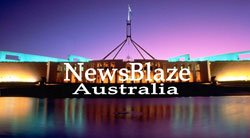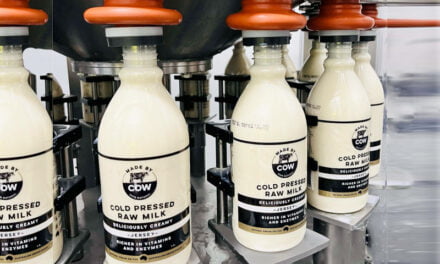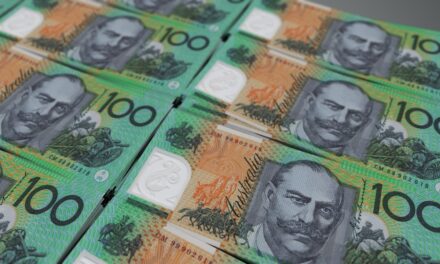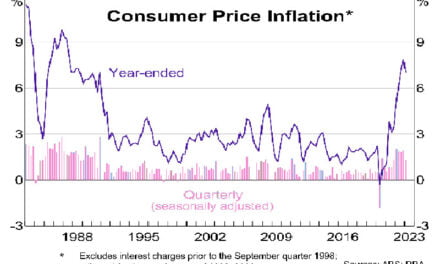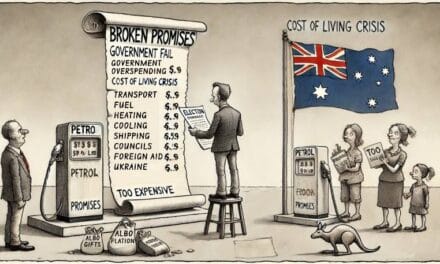Election Spending In Focus
Economists warn Labor and Coalition policies will inflate housing costs and debt, with election spending, while Greens and Teals could drag a minority government further left
Australia’s two major parties are fuelling an election spending arms race that economists say will worsen housing affordability, increase national debt, and degrade the tax system—while minor parties aligned with Labor could intensify the economic damage if they hold the balance of power after the election.
Labor and the Coalition unveiled nearly $24 billion in combined new spending at their campaign launches on Sunday, in a push to win over swinging voters.
UNSW economics professor Richard Holden labelled the contest “fiscally reckless on an unprecedented scale,” warning that both parties are ignoring structural issues and placing short-term politics ahead of long-term responsibility.
The Financial Review estimates the major parties have now promised at least $105 billion in new commitments since the campaign began.
Former Reserve Bank governor Ian Macfarlane said Labor’s plan to help first-home buyers with a 5 per cent deposit and the Coalition’s proposal to make mortgage interest tax-deductible would both drive demand and push house prices higher. “They are stoking up the demand side, which will mainly show up in higher prices,” he said.
UNSW economics professor Richard Holden criticised both sides for treating multi-billion-dollar promises like “rounding error.” “We have $10 billion here and $10 billion there promises on both sides being bandied around,” he said.
The Labor Party’s profligate spending was what caused Australia’s inflation and cost of living crisis, not the myriad of external caused they said caused it.
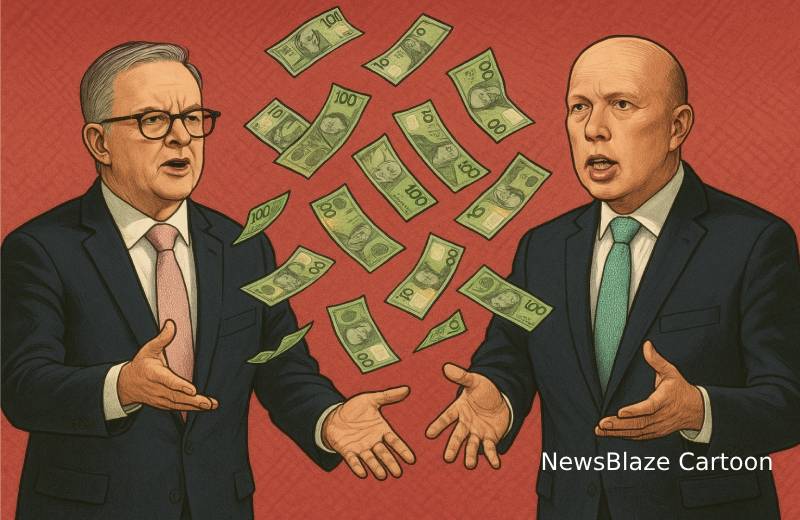
Albo Dutton election spending cash splash. NewsBlaze Cartoon.
Greens and Teals Likely to Push Labor Further Left
While the big-party bidding war draws fire from across the economic spectrum, concern is also rising over the role of minor parties—particularly the Greens and Teal independents—in shaping post-election policy, especially if Labor falls short of a majority.
The Greens have already signalled they will demand further concessions in exchange for their support, including new taxes on wealth and property, a rent freeze, and large-scale public housing construction. They also want to abolish negative gearing for property investors—a policy economists warn would push many landlords to sell, reducing rental stock and driving up rental prices.
Despite branding themselves as environmental champions, some of the Greens’ proposals risk having adverse environmental and economic outcomes, according to critics. Their support for high immigration, hostility to resource development, and resistance to major infrastructure projects have drawn concern from economists and regional leaders alike.
Observers argue these policies would make housing more expensive, increase energy and food costs, and further strain transport, education and health services—disproportionately affecting young people.
The Greens are often seen as the environmental option, but their economic positions are fundamentally radical. Greens don’t reward effort, they discourage investment, and many of their policies would harm the very people they claim to support.
Teals Not Truly Independent
The Teal independents, backed by climate activist funding, campaign on integrity and climate reform but vote with Labor on many policy matters. In Parliament, they have shown limited opposition to increased taxation and spending and have avoided outlining how their climate goals would be funded.
Despite their branding, they function as a soft-left extension of Labor and the Greens, raising the likelihood of more aggressive regulation and expanded government if Labor forms a minority government.
Critics warn that a Labor–Greens–Teal alliance could drive a wave of leftward economic reforms, further increasing cost-of-living pressures for working Australians.
A Trillion-Dollar Debt and No Repayment Plan
Australia’s national debt now exceeds $1 trillion, yet neither major party has presented a credible plan to reduce it. Instead, both continue to announce new election spending without clarifying how it will be paid for.
Even The Australian, typically supportive of Coalition policy, criticised Peter Dutton’s mortgage tax deduction plan—underscoring the breadth of concern among economists and financial analysts.
In contrast, parties outside the mainstream—such as One Nation and People First—are positioning themselves as the only option offering both cost-of-living relief and structural reform to boost productivity and reduce debt. They argue that restoring fiscal discipline and focusing on long-term solutions is essential if Australia is to avoid further economic decline.
Voters Face Stark Choice in an Economically Fragile Election
With inflation stubbornly high, housing out of reach for many young Australians, and budget pressure mounting, the 2025 election is shaping as one of the most consequential in recent memory.
But rather than offering realistic paths forward, major and minor parties alike appear focused on political gain, pushing policies that economists warn will deepen the problems they claim to solve.
The public, is being offered false and glib answers to deep economic pain by the two major parties.
The Greens have started TV ads, looking for a way to boost their vote. The Teals received almost half a million dollars of social media advertising in February-March thanks to Simon Holmes a Court, but when questioned about it, the multi-millionaire said it wasn’t an election campaign. Clive Palmer also had a non-election campaign on the TV and state newspapers for his new Trumpet of Patriots party. That was before the election was called, and now it continues in election campaign mode.
Whether voters buy into the promises — or reject them in favour of a more disciplined alternatives — will be known soon enough. But the price of the campaigns we’re seeing may be paid long after the final vote is cast.
